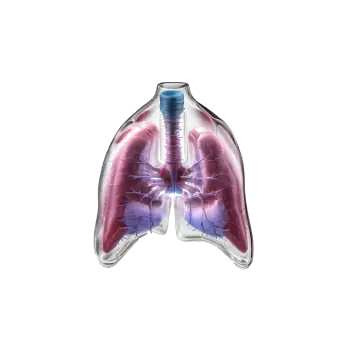What is Atrial Fibrillation?
Atrial fibrillation is a type of heart arrhythmia where the atria of the heart beat irregularly and often very quickly. This can lead to inefficient blood pumping, increasing the risk of blood clots, stroke, heart failure, and other heart complications.
There are different types of atrial fibrillation, including paroxysmal atrial fibrillation, where episodes come and go spontaneously; persistent atrial fibrillation, which requires intervention such as electrical cardioversion or medication to return to sinus rhythm; and permanent atrial fibrillation, where sinus rhythm cannot be restored despite treatment, and a decision may be made not to attempt to restore sinus rhythm.
How does atrial fibrillation feel?
The symptoms of atrial fibrillation can vary greatly between individuals. Some people may not experience any symptoms at all, while others may feel the following:
- Palpitations: A feeling that the heart is beating fast, hard, or irregularly.
- Fatigue: Unusual tiredness and weakness are common signs.
- Shortness of breath: Difficulty breathing, especially during physical exertion.
- Chest pain: Pain or discomfort in the chest.
- Dizziness or fainting: A feeling of dizziness or near-fainting.
- Cough: Atrial fibrillation can also be associated with a cough, especially during exertion or when lying down.
Why do you get atrial fibrillation?
There are several factors that can contribute to the development of atrial fibrillation:
- High blood pressure: One of the most common causes is high blood pressure.
- Heart disease: Including valve diseases, heart failure, and coronary artery disease.
- Thyroid problems: Both overactive thyroid and underactive thyroid can affect heart rhythm.
- Chronic diseases: Such as diabetes and lung diseases.
- Lifestyle factors: Alcohol, caffeine, smoking, and stress can also play a role.
- Genetics: Family history can increase the risk of developing atrial fibrillation.
How do you know if you have atrial fibrillation?
To diagnose atrial fibrillation, doctors can use several methods, with an electrocardiogram (EKG) during ongoing atrial fibrillation being the most decisive:
- Electrocardiogram (EKG): The most common and reliable method for detecting atrial fibrillation. An EKG records the heart's electrical activity and can immediately show an irregular heart rhythm if taken during an ongoing attack of atrial fibrillation.
- Holter monitor: A portable EKG device that records heart rhythm for 24-48 hours or longer. This may be necessary if atrial fibrillation is sporadic and not constant. This method is particularly useful for capturing episodes of atrial fibrillation that are not always present.
- Event Recorder: Another type of portable device that can be used for a longer period to capture irregular episodes. The patient activates the device when symptoms occur.
- Ultrasound of the heart (Echocardiography): Not used to diagnose atrial fibrillation directly but can help identify structural problems in the heart that may cause or contribute to atrial fibrillation.
- Blood tests: Used to rule out other causes that may affect heart rhythm; blood tests can check blood status, electrolytes, thyroid function, and kidney function in newly diagnosed atrial fibrillation.
It is important to note that an EKG must be taken during an ongoing episode of atrial fibrillation for a diagnosis to be made with certainty. For sporadic or paroxysmal episodes, long-term monitoring with a Holter monitor or Event Recorder may be necessary to capture fibrillation activity.
Is atrial fibrillation harmless?
Atrial fibrillation is rarely life-threatening in itself, but it can lead to serious complications if not treated. The greatest risk is the development of blood clots that can cause a stroke. Therefore, it is important to seek medical help if you experience symptoms that may indicate atrial fibrillation.
Treatment and management
The treatment of atrial fibrillation depends on the severity of the symptoms and underlying causes. Different treatments for atrial fibrillation include:
- Medications: To control heart rate or prevent blood clots.
- Electrical cardioversion: A procedure where an electric shock is given to restore normal heart rhythm.
- Ablation: A procedure where small areas of heart tissue that cause irregular rhythm are destroyed.
- Lifestyle changes: Including dietary improvements, quitting smoking, reducing alcohol consumption, and managing stress.
Understanding the symptoms and causes of atrial fibrillation is crucial for effectively managing the condition. If you suspect you have atrial fibrillation, it is important to consult a doctor for a proper diagnosis and treatment.






















